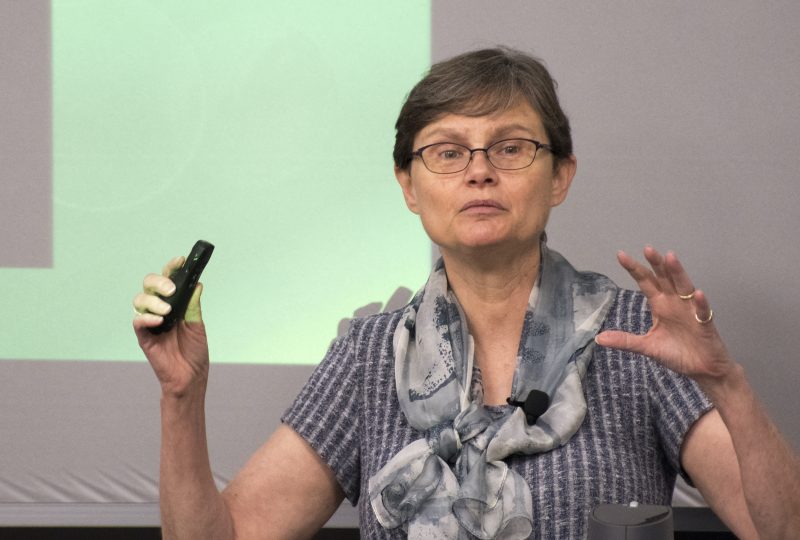Music and singing filled a Northrup classroom last Friday as attendees of the Religion and Climate Change conference sang hymns together. In addition to students, community members of various religious backgrounds traveled to Trinity University to attend different lectures and presentations concerning the connections between religion and climate change.
The conference, organized by visiting political science professor John Burke, lasted most of Friday afternoon and all day Saturday. Lecturers included doctors, local community activists, a reverend and San Antonio’s chief sustainability officer Douglas Melnick. Burke organized these lectures to spread awareness of climate change and discuss why faith-based groups should care.
“We’re trying to provide an academic exercise to have knowledgeable faith-based awareness of what global warming and climate change is about and how as people of faith we can work together across religions to try to move towards a more renewable, sustainable relationships going forward,” Burke said.
The first lecturer, Linda Gibler, presented her analysis of Pope Francis’ book, “Laudato si’: A Call to Change.” Gibler is a Dominican sister of Houston, meaning she took vows to live a life in accordance with Evangelical principles and use the principles to address social justice issues. Gibler also works at the Oblate School of Theology in San Antonio. She spoke about the importance of integral ecology — the mutual movement of human creation and the environment into deeper relationship with God.
According to Gibler, “Laudato si’ ” teaches that destruction of the environment is a result of violence in people’s hearts.
“God is revealed to us in creation, so when we lose touch with that, we forget. We forget that God is part of it, and we can treat Earth wrong. When we do that, we don’t avail ourselves to the fullness of God who’s around us everyday,” Gibler said.
Gibler believes that once people undergo a change in hearts, they will be able to diminish the effects of climate change.
“Earth is suffering, and it’s suffering because of humans’ misuse. And we’re called upon to change that. We’re called to love everything God loves and to care for everything God cares for — for our own good but also because it’s precious to God,” Gibler said.
In addition to lectures, the conference also included a luncheon on Saturday, funded by the Academic Affairs office. Academic Affairs uses their funds to promote faculty programs and events that have the support of their respective department chair. David Ribble, associate vice president for budget & research, believes that Burke’s conference was deserving of the funds.
“I think he put together an interesting group of people that are looking at a critical issue from different perspectives. So I think anytime we’re having that kind of a conversation on campus that’s something that academic affairs would like to support. My job is to promote scholarship on this campus, so that’s how we try to use our funds strategically to support those kinds of things,” Ribble said.
Student organizations also supported the conference, holding breakout sessions Saturday morning to inform the community on the many effects of climate change. Trinity’s Global Health Initiative focused on the social justice aspect of climate change as it affects climate change refugees.
These people can become displaced as rising sea levels overtake the land they live on or use to farm. The club argued that people fleeing the effects of climate change should have a refugee status to be able to seek asylum more freely. With this status, people would be able to gain housing benefits and food assistance.
The club gave an interactive presentation on the global communities affected by climate change, focusing on areas in Asia experiencing rising sea levels. Kira Lalani, junior and vice president of Global Health Initiative, helped organize the presentations.
“We’re trying to bring awareness into the global health aspect of [climate change] and the fact that climate change actually has a lot to do with the global health. With climate change, people are losing their homes and they have nowhere else to go, but the thing is they’re not refugee status so they’re not getting the proper care or recognition that they need,” Lalani said.
The club ended the presentation with time for attendees to contact their representatives to advocate for climate change refugees to be given refugee status.







